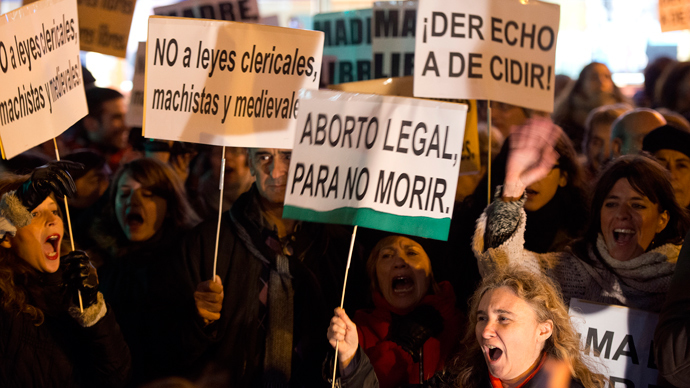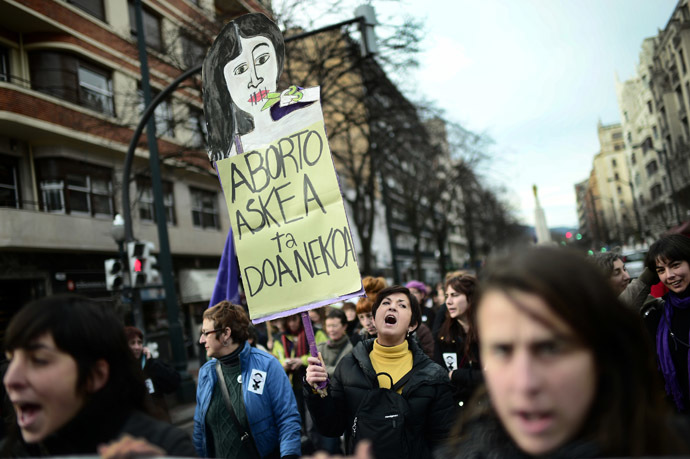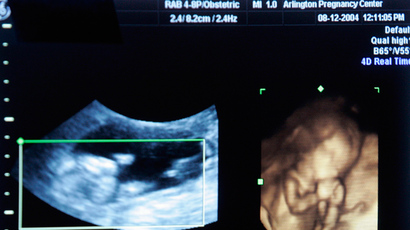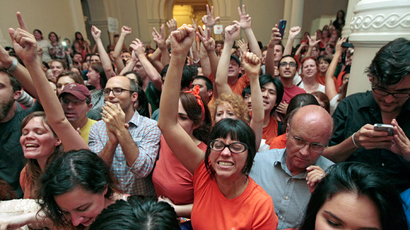Spain pushes for harsh law on abortions, sparking outrage

The Spanish government has approved restrictions on abortions, allowing the procedure only in case of rape or serious risk to mother’s health. Outraged opposition and women rights activists say the law will take women’s rights back to the 1980s.
The law is yet to be passed by the parliament where the ruling party has a majority, but Spain’s Justice Minister Alberto Ruiz Gallardon said in his traditional post cabinet press conference that it is almost sure to happen.
The legislation puts a stop to the women’s rights to terminate their pregnancy in the first 14 weeks. Plus, the women won’t be able to make an abortion if the fetus is found to be malformed.

According to the legislation, the only reasons making the abortion possible are if the woman’s health is under threat by the continuing pregnancy, or if she had been raped.
Moreover, in the case of any hazard to health, the woman will have to provide a paper signed by two specialists to prove her case.
As for younger girls under 18 years old, they will need permission from their parents to abort – something that the previous government got rid of in 2010.
Currently, the legislation allowed abortions without any restriction until the 14th week of pregnancy and up to 22 weeks if the fetus is shown to be seriously deformed.
The new law would provide "defense both for the protection of the life of the unborn child and women's rights", the Justice Minister Ruiz Gallardon indicated.

He also said the new bill would penalize those who carry out abortions but would not criminalize women for having the procedure.
The opposition and women’s rights activists are strongly against the law, saying it will take women’s rights in Spain back 30 years – and indeed, the new legislation is more restrictive than that in 1985.
As a result women "will go to underground places", Salim Chami, a gynaecologist at the Isadora abortion clinic in Madrid, told AFP.
Elena Valenciano, deputy leader of the opposition Socialist (PSOE) Party, called for those who were against the new law to show their opposition and "mobilize society against what is going to be a reduction in women's freedom which is impossible to understand."















